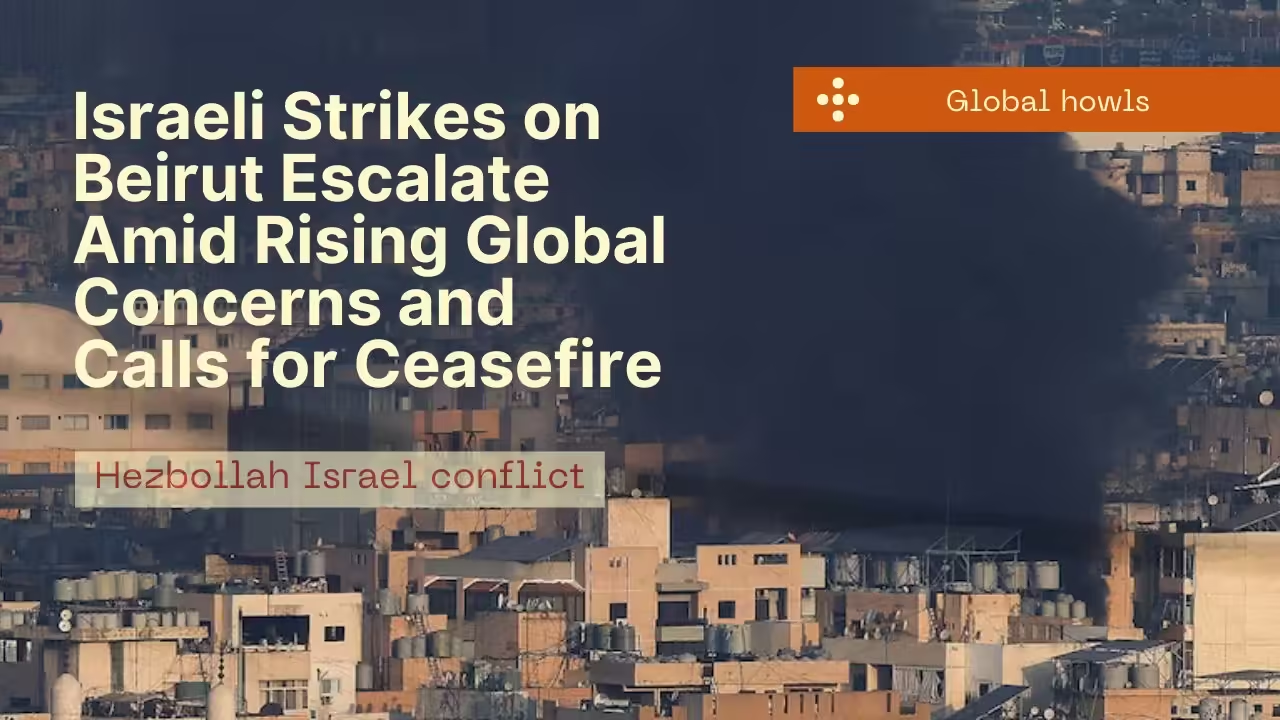“Iran-Israel tensions”- Iran’s Islamic Revolutionary Guard Corps (IRGC) issued a severe warning to Israel following the assassination of a senior Hamas leader. The IRGC condemned the act, declaring that Israel would face severe consequences for its actions. This warning highlights the potential for increased regional tensions and the possibility of retaliatory attacks by Iranian-backed forces. The IRGC’s statement underscores Iran’s ongoing support for Hamas and signals a readiness to escalate its involvement in the conflict between Israel and Palestinian militant groups, further destabilizing the already volatile Middle East.
“Iran’s IRGC Commander Asserts a Fresh Warning Directed at Israel” – “Iran-Israel tensions”
Tensions are reaching a critical point as Iran’s Islamic Revolutionary Guard Corps (IRGC) has issued a strong warning to Israel following the assassination of Hamas leader Ismail Haniyeh. The IRGC Deputy Commander has made it clear that Iran will not stand by idly and has promised a severe and decisive response. In a public statement, the commander emphasized that Israel should brace itself for a retaliation unlike anything it has ever faced before. The IRGC, known for its powerful influence and military capabilities, has vowed to act swiftly and with overwhelming force, ensuring that the consequences for Israel will be dire. The statement reflects the deep anger and determination within the IRGC, signalling that any further escalation could lead to a significant and dangerous conflict. This development adds a new layer of complexity to the already tense relations between Iran and Israel, raising concerns about the potential for a broader regional confrontation. As the situation unfolds, the international community watches closely, aware that the stakes are incredibly high and the repercussions of this clash could be far-reaching.

Israel targeted a Hezbollah arms depot in Lebanon, resulting in 8 injuries – “Iran-Israel tensions”
At least eight people, including two children, were injured after an Israeli airstrike targeted a Hezbollah weapons depot in Lebanon’s Bekaa Valley. The airstrike triggered a series of powerful explosions, underscoring the substantial stockpile of munitions stored at the site. This incident marks another escalation in the ongoing conflict between Israel and Hezbollah, which has been intensifying over the past year. The conflict has already claimed over 600 lives in Lebanon, causing widespread destruction and deepening regional tensions. The Bekaa Valley, known for its strategic importance, has seen increased military activity as Israel continues its campaign against Hezbollah, aiming to dismantle the group’s military capabilities. This latest attack is a stark reminder of the volatile situation in the Middle East, where the risk of broader conflict looms large. As the situation continues to evolve, staying informed about developments in the region is crucial.
“Israeli Drone Strike Kills Radwan Forces Commander after Netanyahu Provokes Hezbollah”- “Iran-Israel tensions”
the Israeli Defense Forces (IDF) carried out a precise drone strike in Southern Lebanon, targeting a key figure within Hezbollah. The strike resulted in the death of Hussein Ibrahim, the commander of Hezbollah’s elite Radwan Forces. This operation took place against a backdrop of escalating tensions in the region, particularly following the recent assassination of another high-ranking Hezbollah official, Fuad Shukr. The IDF has since released footage of the drone strike, which shows the exact moment Hussein Ibrahim was hit, confirming his elimination. This event marks a significant escalation in the ongoing conflict between Israel and Hezbollah, signalling Israel’s continued efforts to weaken the militant group’s leadership amid a volatile and increasingly dangerous regional situation.
Turkey urges Iran against the USA and Israel, did Erdogan leave NATO after the invasion threat? – “Iran-Israel tensions”
The NATO member nation of Turkey has recently escalated its rhetoric against both the United States and Israel, openly challenging their actions in the Middle East. Hicabi Kırlangıç, Turkey’s ambassador to Iran, delivered a pointed statement, underscoring that while Ankara does not seek to influence Iran’s specific responses to Israeli activities, it strongly believes that nations perceived as aggressors—namely Israel and the U.S.—should be held accountable and compelled to alter their course. Kırlangıç’s remarks reflect a deepening rift within NATO, as Turkey distances itself from the policies of its Western allies. In a parallel move, Turkish Foreign Minister Hakan Fidan issued a forceful condemnation of the United States for its unwavering support of Israel’s actions, particularly in the context of recent conflicts. Fidan’s statements signal a growing alignment between Turkey and Iran on key regional issues, further complicating the geopolitical landscape in the Middle East. This diplomatic shift suggests that Turkey is increasingly willing to challenge the traditional Western narrative, positioning itself as a vocal critic of U.S. and Israeli policies in the region.
Hamas reveals more fighters inside Israel following Tel Aviv blast. Are IDF and Netanyahu clueless?- “Iran-Israel tensions”
On August 19, Hamas officially claimed responsibility for a bombing in Tel Aviv, marking a significant escalation in their ongoing conflict with Israel and further intensifying the already fraught Iran-Israel tensions. The attack caused widespread panic and significant damage in Tel Aviv, one of Israel’s most populated and strategic cities. This operation was carried out in close cooperation with Palestinian Islamic Jihad, another militant group active in the region. The collaboration between these two powerful groups underscores a unified front against Israel, dramatically heightening the risks in the ongoing conflict and linking the situation directly to broader regional dynamics, particularly the growing Iran-Israel tensions. Hamas has openly declared that this bombing is only the beginning of a series of planned attacks. The group has made it clear that they intend to continue launching similar operations as long as the current hostilities in the Gaza Strip persist. This bold declaration signals a strong commitment to further aggression, raising fears of a prolonged and increasingly violent conflict in the region. The involvement of Palestinian Islamic Jihad, which has strong ties to Iran, ties the escalating violence directly to the broader Iran-Israel tensions. This development comes at a time when Iran’s influence in the region is expanding, and its support for militant groups like Hamas and Islamic Jihad is viewed by Israel as a direct threat to its national security. The statement from Hamas not only intensifies the existing tensions between Israel and the Palestinian territories but also adds fuel to the already volatile Iran-Israel tensions. The ongoing hostilities, with Iran’s backing of militant groups, pose a significant threat to peace and stability in the Middle East, indicating that more attacks could follow, leading to an extended period of violence and unrest in both Israel and the Palestinian territories. This situation underscores the dangerous intersection of local and regional conflicts, where the Iran-Israel tensions play a critical role in shaping the trajectory of violence in the region.
Amid ceasefire talks, Israel strikes Khan Younis in Gaza. – “Iran-Israel tensions”
Israel and Hamas are currently locked in a serious conflict. On Sunday, Israel launched airstrikes on the city of Khan Younis in the southern part of Gaza. These airstrikes were deadly, resulting in the deaths of 29 people, adding to the already high tensions in the region. At the same time, U.S. Secretary of State Antony Blinken was in Israel, trying to help negotiate a ceasefire to reduce the violence. The United States, along with Egypt and Qatar, has been actively involved in these negotiations. After two days of talks in Doha, these countries have reported that some progress has been made toward reaching a ceasefire agreement. Israeli officials are cautiously optimistic about the potential for a ceasefire, hoping that it will bring some stability to the region. However, Hamas has strongly rejected the ceasefire talks, accusing Israeli Prime Minister Benjamin Netanyahu of blocking any real chance for peace in Gaza. This accusation has further complicated the situation, making it unclear whether the efforts to end the violence will succeed. As the conflict continues, the people in Gaza and Israel remain in a state of uncertainty, waiting to see if peace can be achieved.
Conclusion
The article highlights the escalating tensions and conflicts in the Middle East, particularly between Israel and various militant groups, including Hamas and Hezbollah. Iran’s IRGC has issued severe warnings to Israel following the assassination of a Hamas leader, while Israel continues to carry out targeted strikes against Hezbollah in Lebanon. Additionally, Turkey’s growing alignment with Iran and its criticism of U.S. and Israeli policies further complicate the geopolitical landscape. Amid these rising hostilities, ceasefire talks are underway, but the prospects for peace remain uncertain, with Hamas rejecting negotiations and ongoing violence in Gaza. The situation remains volatile, with the potential for further conflict.
Read all our Blogs on https://globalhowls.com/
Source https://news.google.com/
Regards,
Global Howls


